
by Sylvia Bass | Oct 21, 2022 | Tips & Tricks
Did you know that UCI has free access to Udemy courses? Generally, you pay per course, but with UCI Udemy you can log in with your UCInetID and take any available course for free.
If you want to take your WordPress skills to the next level, try one of the courses available. One thing to note is that these courses usually apply to self-hosted WordPress so not everything will apply. For example, you cannot install themes or plugins.
Try it out to learn how to use WordPress to make your website even better!

by Sylvia Bass | Sep 15, 2022 | Announcements
We have recently learned that all website tracker tools, including Meta Pixel and Google trackers, must be disabled on all websites related to UCI Health or UCI School of Medicine by September 26, 2022.
This is due to a recommendation from the UC Regents. An email was sent from Dean Michael Stamos in the School of Medicine.
At this time, UC Regents has recommended that all website tracker tools, including Meta Pixel and Google trackers, be disabled on all websites related to UCI Health or UCI School of Medicine. That includes those sites managed or maintained by UCI or UCI Health, and all sites managed or maintained by outside companies.
All trackers must be disabled by September 26 to be in compliance with the UC Regents’ directive. We will conduct a thorough review following the September 26 deadline to verify compliance.
Dean Michael Stamos
Disabling Google Analytics on Your Website
We provide Google Analytics at the network level to all websites that we host. This allows you to see basic analytics on your dashboard to see what content is most popular.
You can now disable Google Analytics tracking on your individual website. CampusPress has created a plugin that allows you to block network tracking. See the instructions below to Activate the plugin to block Google Analytics tracking.
Frequently Asked Questions
How can we disable Google Analytics on our UCI Health or School of Medicine websites hosted on UCI Sites to be in compliance?
We have been working with the Communication offices in UCI Health and the School of Medicine. We disabled tracking on about 20 sites that we are aware of. However, if your site is affected, it is possible we missed it if was unknown to be a part of UCI Health or School of Medicine. You can still disable tracking by following the directions below.
We now have a plugin that allows site administrators to disable Google Analytics tracking. Follow the steps below to disable Google Analytics on your individual website.
- Log in to your website as an administrator
- Go to the Plugins menu on the Dashboard
- Look for “Disable Tracking and Statistics”. (You can also use the Search field)

- Click the Activate button
That’s it! Google Analytics will no longer be able to track your website.
You will also no longer see the Visitors panel in your Dashboard or the Statistics + GTM settings in the left menu of the Dashboard.
How can I confirm that Google is not tracking my website anymore?
You can try using either Firefox or Safari. Both have a privacy tracker built in. Make sure you are logged in if you just activated the plugin. The non-logged in view will be cached and may take 15 minutes or so to show the changes to the public.
Safari
- Using Safari, visit your website.
- Click the shield icon to the left of the URL field.
- Safari will show how many trackers are used on the website.

Firefox
- Using Firefox, visit your website.
- Click the shield icon to the left of the URL field.
- Firefox will show how many trackers are used on the website.
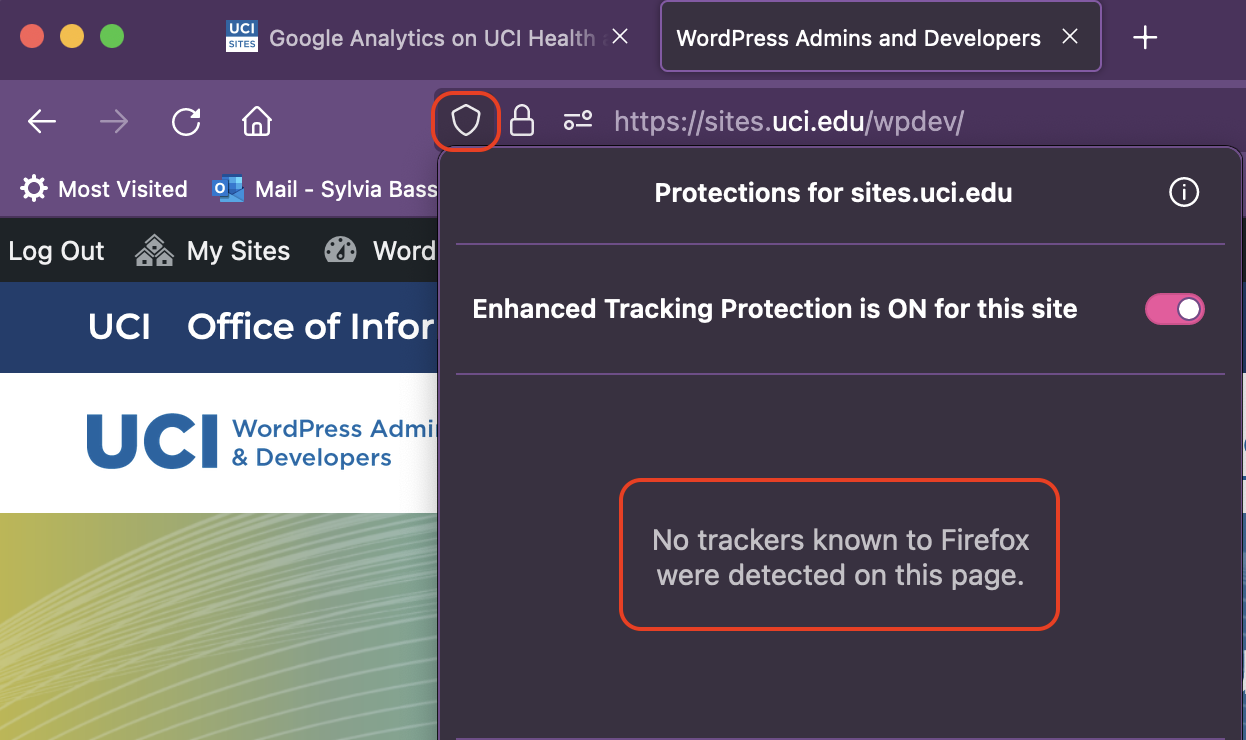
Is Google Analytics still allowed on other UCI websites that are not related to UCI Health or Medicine?
As of now, yes. We will update this article if the policy changes to extend to all UCI websites.
Is Meta Pixel enabled? How do I disable or remove that?
Meta Pixel is a snippet of JavaScript code that allows you to track visitor activity on your website. Meta is the parent company of Facebook and Instagram. It is not installed or enabled on UCI Sites.
Using Meta Pixel requires setting up an account with Meta and adding code into the <head> section of your website using a plugin like “Advanced Settings”. If you don’t know what this is, it is highly unlikely you have it on your website. It would require that you or another site administrator set it up.
Can I still use Jetpack Site Stats on UCI Health or School of Medicine websites?
No, we would not recommend it.
The email from Dean Stamos stated all trackers must be disabled on UCI Health and School of Medicine websites. While Jetpack was not named, it is best to err on the side of caution and not use Jetpack Site Stats.
Jetpack is an optional plugin that is not enabled or configured by default.
- If you are not using Jetpack, no action is needed.
- If you are using Jetpack, Site Stats is ON by default. You can disable it by following the directions below.
How to Disable Jetpack Site Stats
- Go to the Jetpack > Dashboard menu in the left sidebar of your Dashboard.
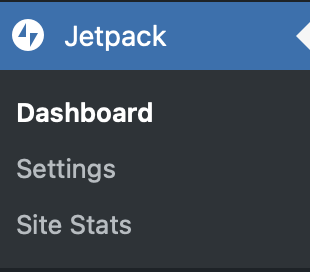
- At the bottom of the page, look for Modules in the list of Jetpack links.

- Click Deactivate in the Site Stats row.
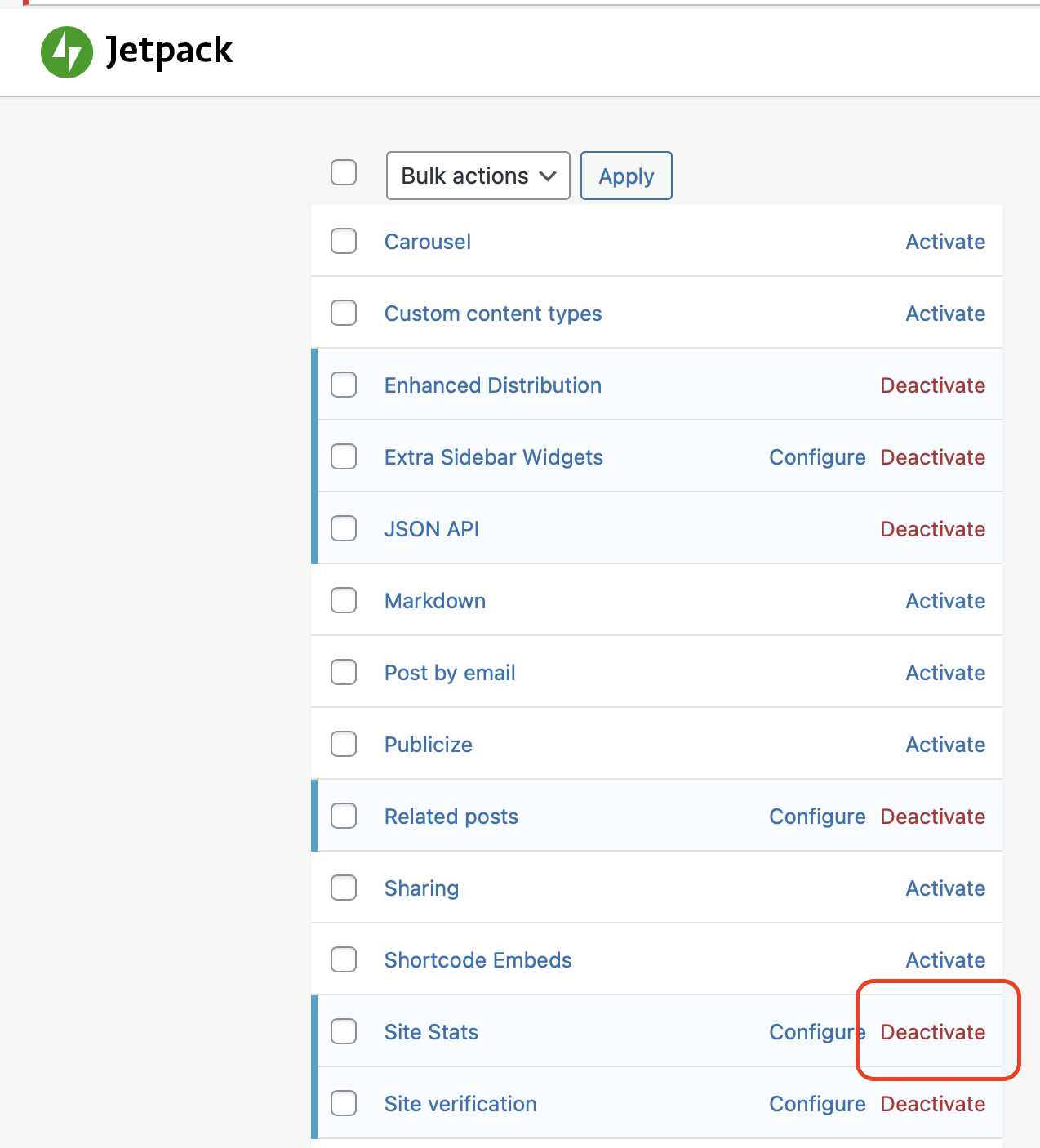
- Site Stats in Jetpack will now be deactivated. The site will no longer track visitors using Jetpack, nor will the Site Stats module be displayed on the dashboard.
Updated on September 26, 2022 at 7:15 a.m.

by Sylvia Bass | Sep 6, 2022 | Announcements
Remember to update the websites you create regularly to ensure they stay active! We have a policy as part of our Terms of Service that states that sites that are inactive because they haven’t been updated in more than 2 years, may be archived.
Every year, we run a report to see which sites are inactive. If your website has not been updated in more than 2 years, it may be archived. We send email and email reminders to the site owners to ask if the site is still being updated and if you want it to stay active. If we do not hear back or the site is not updated, we may archive the site. Archived sites can be reinstated by request.
Why do you archive sites?
We want to make sure that the sites we host are still needed. Sites are easy to create, so sometimes people create sites and either never use them or haven’t used them in years. People also leave UCI either because they graduate, find a new job, or retire. We have been running this service for 13 years. Over that time many of the original sites have been abandoned. By archiving the inactive sites we can help make sure the information on the websites stays up to date and relevant. We are thrilled if you want to keep using the service. We will happily keep any site active by request or simply update the content on a regular basis and it will always stay active.
What if I’m no longer at UCI?
Your access to editing the site is provided by your UCInetID. While you are a current student or an active employee, you should have access to your site. However, after that time, you will no longer be able to log in to make changes. We can export your site’s content upon request. Learn more about UCInetID Deletion Policies.
Help! I missed the email and my site has been archived.
No need to worry. We can easily unarchive your site and return it to its previous state. Contact us! We’re here to help.

by Sylvia Bass | Jul 21, 2022 | Tips & Tricks
In 2019 we shared a variety of websites where you can find royalty-free images for your website or blog. Before adding images to your website, make sure you have permission to use them. If you don’t take the photos yourself, the next best option is to find photographers and artists who are willing to share their images. Often all they ask for is attribution.
UCI Sites now has a plugin you can activate that will allow you to search, download and embed photos directly from your WordPress website. It searches the Pixabay library and will download the images for you.
Activate the Pixabay Images plugin to get started
You will need to be an administrator on the website to be able to activate plugins.
- Go to Plugins > All and look for Pixabay Images
- Click the Activate button
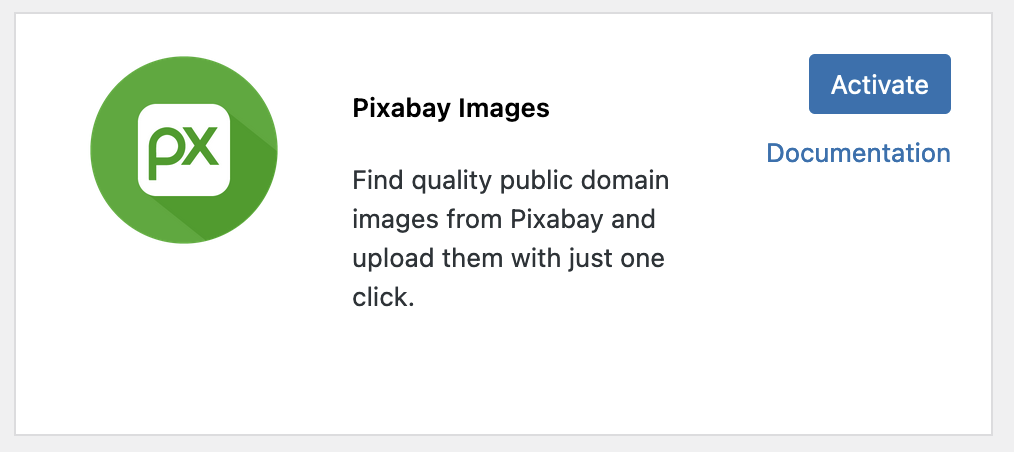
How to add a Pixabay Image
- Create or edit a Post or Page
- If you are still using the Classic Editor, look for a Pixabay button next to Add Media.

- If you using the Block Editor, you will need to use a Classic Block to search for and insert a Pixabay image.
- Add a Classic Block
- Click the Add Media button. (It looks like a camera and musical note.)

- In the Add Media screen, click Pixabay Images in the left section.
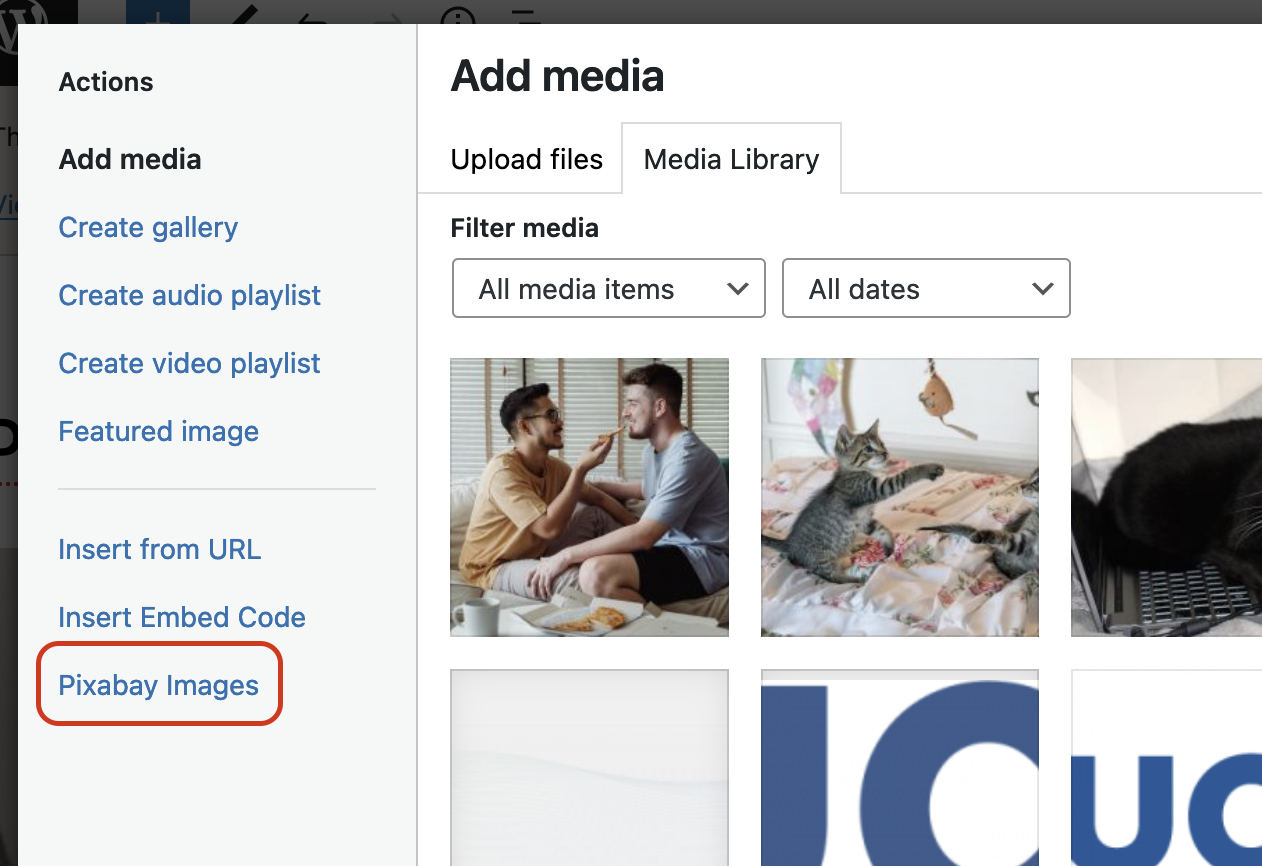
- Type a search term and click Enter or click the magnifying glass.
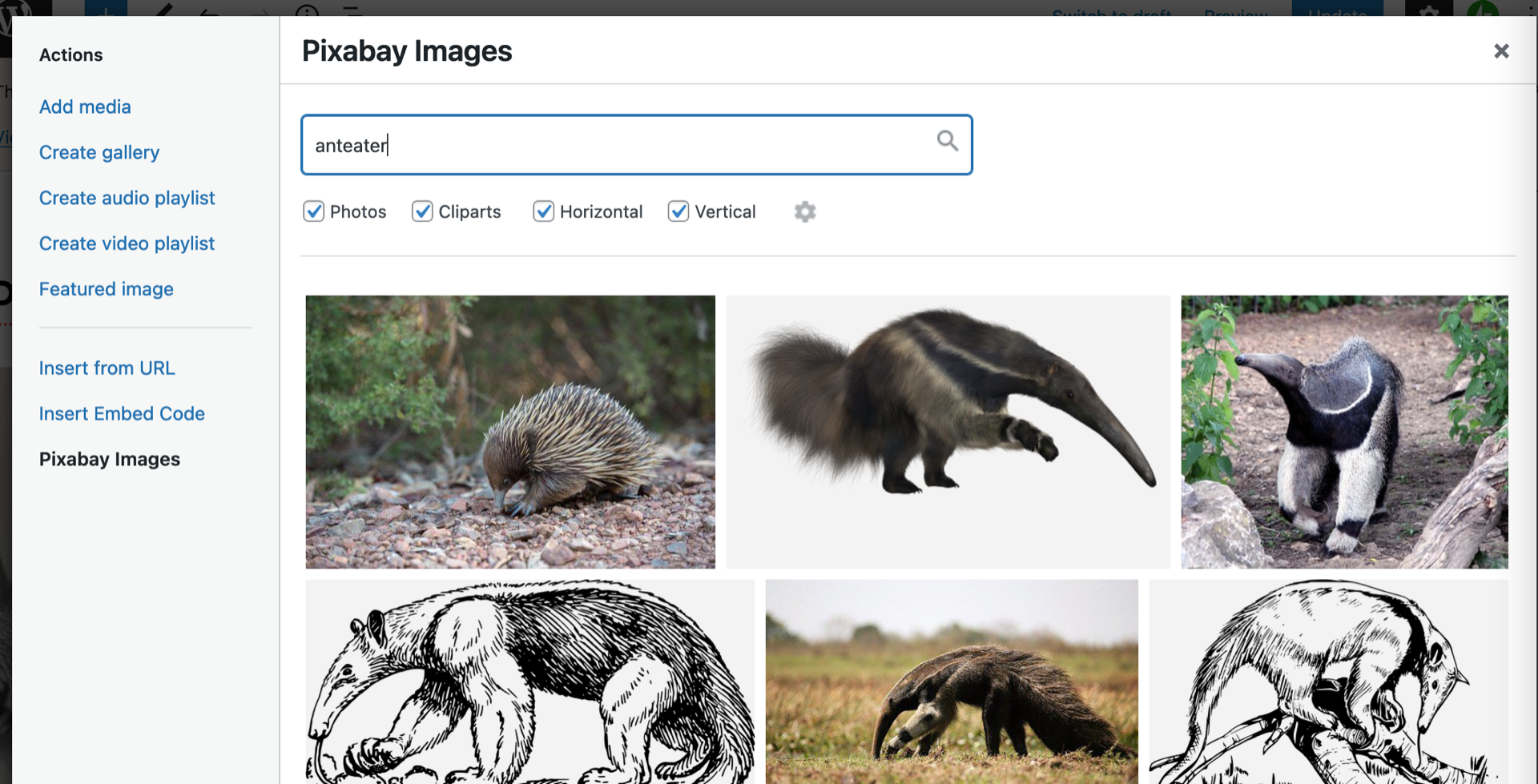
- The plugin will search Pixabay’s extensive library and return the results.
- Find the photo you want to use and click on it to download.
- Add in Alternative Text to make sure it is web-accessible!
- Choose the size you want to use and click Insert Into Post.
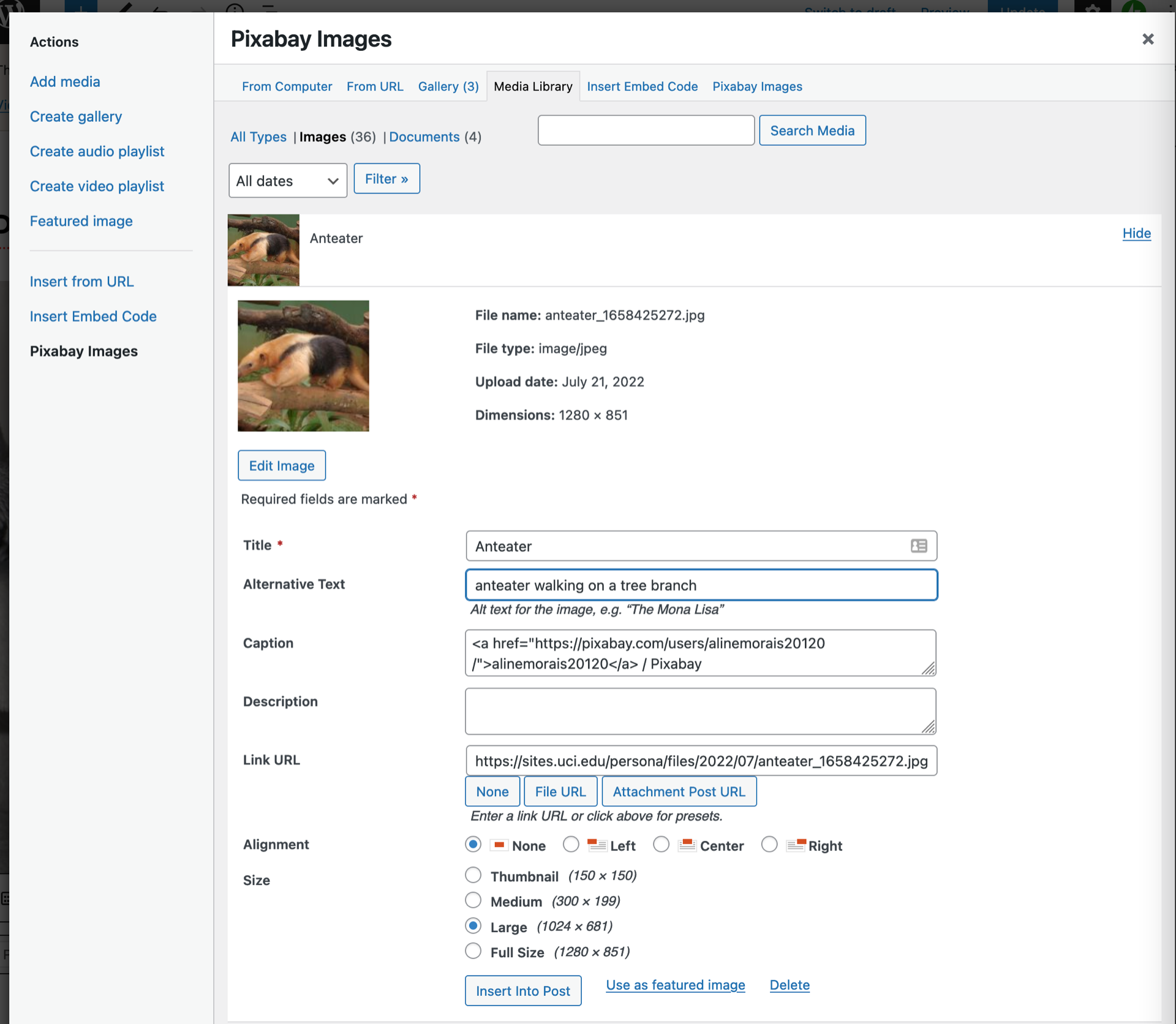
- The image will now appear on your page or post. The image will also be downloaded to your Media Library allowing you to re-use it on your website. Once downloaded you can use it on any block that uses images from your media library.
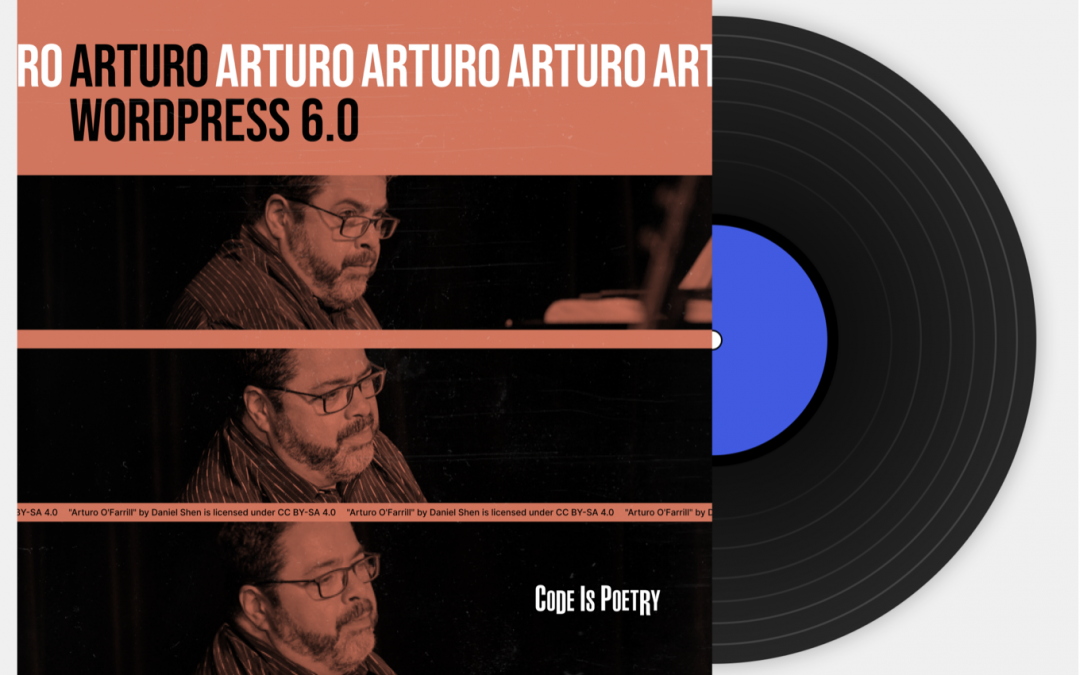
by Sylvia Bass | Jul 7, 2022 | Announcements
UCI Sites has been upgraded to WordPress 6.0 “Arturo”.
It has nearly 1,000 enhancements and bug fixes and is the second major release in 2022.
Features and Improvements
- Enhanced Writing Experience – You can now select text across multiple blocks. You can quickly add internal links by typing ‘[[‘. When you customize buttons, the new buttons will retain the style automatically.
- Block Locking Controls – You can now lock your blocks. If you have a reusable block and don’t want it overwritten, you can now lock it.
- Improved Performance – These enhancements cover a range of performance areas including improving the page and post-load speed, reducing the execution time of various query types, caching, navigation menus, and much more.
- Improved Accessibility – WordPress 6.0 includes more than 50 updates specifically focused on enhancing the accessibility of the platform.

















